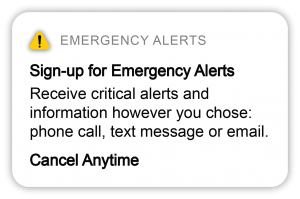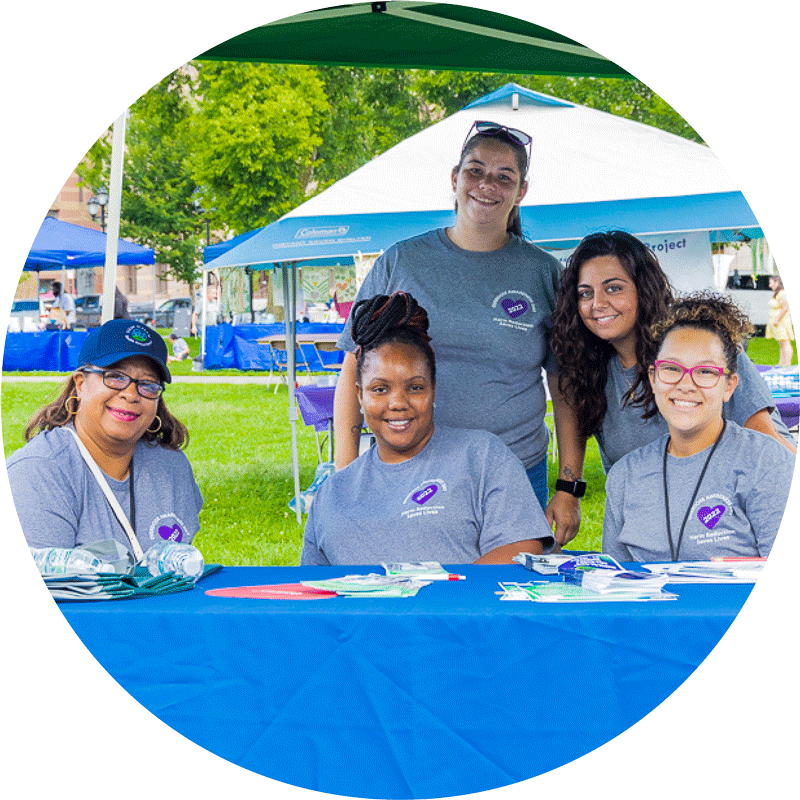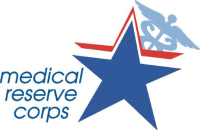Public Health Emergency Preparedness
As part of the Citywide Emergency Response Team, the Office of Public Health Emergency Preparedness and Response works to ensure the City of New Haven responds effectively to natural disasters, acts of terrorism, and other emergencies that could affect the public’s health. This mission is achieved through planning, training, educating, and collaborating with local, regional, state, and community stakeholders.

City of New Haven Emergency Alerts
Get alerted quickly by signing up for the City of New Haven Emergency Notification System. You will receive time-sensitive messages for things such as severe weather, unexpected road closures, missing persons, and evacuation of buildings or neighborhoods. You pick where, you pick how.
Log in to change your alert settings. Call 203-946-8224 to cancel.
How to be Prepared
A disaster can strike quickly and without warning. You may have to evacuate, be instructed to go to a shelter or to shelter in place in your home or office. It is also possible that electricity, water, gas or telephone service is disrupted.
Being prepared for these situations is important for the health and wellbeing of everyone, especially older adults, people who have a disability or functional limitation, and pet owners. Preparation, planning and staying informed are steps that will help to ensure safety in an emergency situation.
Build a Kit
Putting together a disaster supplies kit will help you and your family be prepared for an emergency. A disaster supply kit is a basic collection of items that you may need in the event of an emergency.
Make a Plan
Your family may not be together when a disaster strikes so it is important to plan in advance. Include all family members, including children, when you plan how you will get to a safe place, contact one another, get back together (if separated) and what you will do in different situations. Don’t forget to plan for pets as well.
Be Informed
Most communities are affected by several types of hazards during a lifetime. Knowing what to do before, during and after an emergency is a critical part of being prepared and may make all the difference when seconds count.


Medical Reserve Corps (MRC)
Medical Reserve Corps (MRC) volunteers include medical and non-medical personnel. MRC Volunteers strive to strengthen public health, improve emergency response capabilities, and build community resiliency. They prepare for and respond to natural disasters, such as hurricanes, tornadoes, blizzards, floods, and other emergencies affecting public health, including disease outbreaks.
Resources
- Air Quality Index
- American Heart Association
- American Red Cross
- Bioterrorism (Agents & Diseases)
- Centers for Disease Control and Prevention – (CDC)
- Chemical Emergencies
- Connecticut State Department of Public Health
- CTResponds!
- FEMA
- Food Safety During Power Outages
- Future Without Violence
- Home Healthcare Workplace Violence
- Medical Reserve Corps (HHS)
- Medical Reserve Corps (State of CT)
- Natural Disasters & Severe Weather
- Pandemic Influenza
- Personal Preparedness & Planning
- Poison Control
- Poison Control for Pets
- Preventing School Violence
- Radiation Emergencies
- Recent Outbreaks & Incidents
- Resources for Emergency Health Professionals
- U.S Department of Health and Human Services
- Violence & Injury Prevention
- Workplace Violence
- 211 of Connecticut
